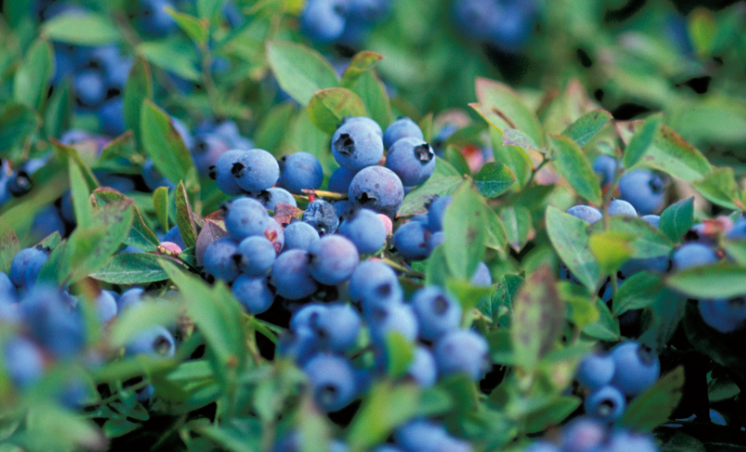Questioning Nutritional Research: Do We Need More Studies About Health & Nutrition?

Just before the debut of his now-popular TV show The Doctors, pediatrician Jim Sears talked to Wild About Health about wild blueberries, nutrition, and nutritional research. He reminded us that 200 years before we even knew what Vitamin C was, sailors ate lemons and limes to help prevent scurvy while they were at sea. While the sailors didn’t know the science behind what they were doing, they did know their health improved when they did it.
In some ways, consumers today are very much like those sailors. We know that the reason wild blueberries are so healthy has a lot to do with their high antioxidant capacity. But why does that help us live longer? Is it a mysterious, super-powerful anthocyanin, or is it, more likely, a balance of many compounds that work together? What else is there in wild blueberries that we haven’t even discovered yet? And if we already know they are good for us, is it really important to know why?
The Buzz About Phytos
A large amount of today’s interest in food nutrition revolves around phytonutrient (also known as phytochemical) research. The term “phytonutrients” is used to refer to the many compounds in plants that give them color, flavor and resistance to disease. They are the micronutrients beyond the more commonly known nutrients, such as proteins,fats, carbohydrates, vitamins and minerals. Some of the phytonutrients in fruits and vegetables work to provide disease protection, some act as anti-inflammatories, and some activate genes that fight cancer.
 While we are used to associating foods with certain vitamins and minerals (a banana is known to be high in potassium, for example) we are less likely to associate foods with one of the hundreds of phytonutrient compounds that work to defend us against specific diseases and help us live longer. Some day, as research accumulates, perhaps we will. You may even recognize a few now (we have discussed them many times on this blog). They include anthocyanins, known for their ability to stop free radical damage, pterostilbene, known for its cholesterol lowering properties and resveratrol, known for its heart healthy properties. Wild blueberries, for example, contain nearly 100 of these compounds. They are concentrated in the berry’s intensely-colored skin, and they provide them with their blue color.
While we are used to associating foods with certain vitamins and minerals (a banana is known to be high in potassium, for example) we are less likely to associate foods with one of the hundreds of phytonutrient compounds that work to defend us against specific diseases and help us live longer. Some day, as research accumulates, perhaps we will. You may even recognize a few now (we have discussed them many times on this blog). They include anthocyanins, known for their ability to stop free radical damage, pterostilbene, known for its cholesterol lowering properties and resveratrol, known for its heart healthy properties. Wild blueberries, for example, contain nearly 100 of these compounds. They are concentrated in the berry’s intensely-colored skin, and they provide them with their blue color.
Fruits and vegetables demand attention in the lab and on our plates largely because of phytos. Researchers attempt to isolate them and understand the mechanism that prevents disease, some in order to treat disease more effectively, others with the goal of putting them into supplement form and selling them to consumers. No matter the objective, scientific research is a long and often difficult road, requiring the time and funds to replicate studies and gather data that turns cutting edge science into common knowledge. Even when there is enough evidence to support that a certain phytonutrient works specifically to fight disease in a certain part of the body, we still may not understand exactly how.
Phytonutrients contain mysteries that are yet to be uncovered. But if we already know that fruits and vegetables that contain phytos are good for us, why must we know more? Why not leave research in the lab, and continue to be like those sailors at sea?
1) Finding the Right Dose
According to Dr. Robert Krikorian, Associate Professor in the Department of Psychiatry and Behavioral Neuroscience at University of Cincinnati, dose is an important issue in the ongoing studies into nutrition. His research into the connection between wild blueberries and cognitive ability indicates that there are reasons to believe lower, easily achievable doses can be effective in treating disease. That means regular servings of fruits and vegetables – not super doses or supplementations – are enough to make positive changes and correct deficits that are the result of a poor diet over time.

Krikorian’s message is an important one for those who may feel moderate amounts of berries, for example, won’t make a difference to their health. They may give up on nutritional efforts altogether because they are unable to afford healthy foods, have little access to them, or are not motivated enough to eat them. Understanding the power of doses, through nutritional research, can make big differences in how we think about food and how we act to mitigate today’s nutritional challenges.
2) Providing Doctors with Confidence
When doctors are armed with evidence that nutritional behaviors work, they will have the confidence to prescribe healthy food to patients faced with preventable and reversible disease such as diabetes, high blood pressure, metabolic syndrome, and a myriad of others. While diet suggestions can be common in the doctor’s office, the shift to making food a disease prevention Rx has yet to reach its tipping point.
The growing body of evidence that diet has the potential to reduce chronic disease risk and promote healthy aging can reinforce, for doctors and consumers alike, that food can in fact be used as medicine. Doctors routinely come face to face with patients dealing with the repercussions of being overweight, for example – much of one’s risk of Type 2 diabetes depends on weight. According to Dr. Daniel Nadeau, Medical Director of the Diabetes and Endocrinology Associates of Maine’s York Hospital, preventing and even treating chronic disease that results from excessive weight begins with food choices. For his patients, he depends on food as prescription, and inspires them with his knowledge that making better choices works.
3) Understanding Gene Expression
While we have yet to offer widespread access to individual gene mapping, soon it will be commonplace. Mapping our genome can help us find out whether we are at risk for certain diseases so we can take action. Because research indicates that phytonutrients act on gene expression, eating the right foods to provide a defense for health vulnerabilities can help us proactively prevent or delay disease. If you have a family history of Alzheimer’s, for example, early research indicates that eating wild blueberries could help prevent and delay the onset of damage to the brain as you age.

Studies conducted by Dr. Dorothy Klimis-Zacas, Professor of Clinical Nutrition and lead researcher from the Department of Food Science and Human Nutrition at the University of Maine, Orono, have shown wild blueberries may help prevent vascular complications associated with hypertension and they may also affect gene expression. She and her team found that the berry may aid in the maintenance of a functional endothelium – the thin layer of cells that line the interior surface of blood vessels. While this may seem like arcane information only of interest to those in lab coats, in fact, studies like these are helping provide the key to our future cardiovascular health. Understanding that it is not simply antioxidants in wild blueberries that provide the benefit but the action of a certain bioactive compound can help us unlock the door to a major health concern.
Until We Know More
Even without a map of your genome or an Rx from your doctor, it’s smart to begin a healthy diet of daily servings of functional foods to provide a path to prevention. Beginning a healthy eating regimen before disease sets in is more effective than waiting until the damage is done. And, while studies that aim to isolate phytonutrients in foods and identify the mechanism behind their benefit are ongoing, one thing is certain: a diet that includes a healthy amount of fruits and vegetables, particularly those with deep pigments, can improve health, prevent disease, and promote healthy aging. Study after study confirms it. There is simply no reason to wait for researchers to compile more evidence to start implementing this advice now, whether we fully understand the science behind it or not.
Recent Studies You Should Know About
In Maine, the Bar Harbor Group dedicates itself to continuing nutritional research as it relates to berries. Each year, researchers and scientists from around the country gather to share ongoing research and findings about nature’s most promising foods. In past years, presentations have included research involving disease prevention and anti-aging, cancer, heart disease, Alzheimer’s and macular degeneration. We’ll keep you posted about this year’s summit, which took place this summer.
 Wild Blueberries May Protect DNA From Damage
Wild Blueberries May Protect DNA From Damage
Juice made from wild blueberries may reduce oxidative damage to DNA by around 3% and decrease the risk of cardiovascular and degenerative diseases, suggests new data.
Berry Pigments Show Heart Health Benefits
Increased intakes of anthocyanins – antioxidant pigments from fruit and vegetables – may reduce blood vessel hardening and improve overall heart health, says a new study.
Study Unlocks Cholesterol-lowering Activity of Blueberry
The potential cardiovascular benefits of blueberry may be related to the berries’ anthocyanins interacting with bile acids to promote cholesterol reduction, suggests data from a study with hamsters.
Read more of the most recent research into the benefits of blue, including studies about vision, gut health, cancer prevention, and diabetes.

